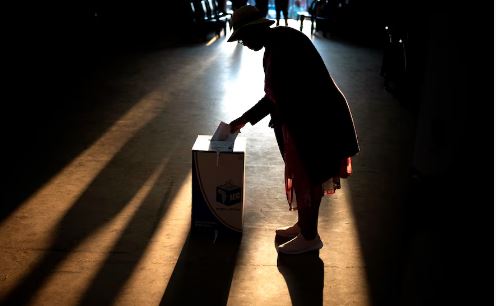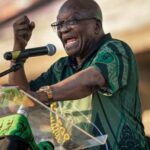South Africa’s recent national election has sparked intense interest, marking what could be the most fiercely contested political showdown in three decades. Since the dawn of democracy in 1994, the African National Congress (ANC) has held a firm grip on power, securing both parliamentary dominance and the presidency. However, this election poses a formidable challenge to its longstanding authority.
In South Africa’s electoral system, citizens cast their votes for parties rather than directly for the president. This distinction is crucial: while voters determine the composition of Parliament, lawmakers subsequently elect the president.
On Election Day, spanning from 7 a.m. to 9 p.m., millions of South Africans across nine provinces exercised their right to vote. With nearly 28 million registered voters participating, the election will shape both the national and provincial legislatures.
Traditionally, parties secure seats in Parliament based on their share of the vote. As counting commences immediately after polls close, the final results are anticipated by Sunday, overseen by the independent electoral commission.
The pivotal moment arrives when Parliament convenes to elect the president. With the lower house, the National Assembly, tasked with this responsibility, the ANC’s historical parliamentary majority has facilitated the seamless ascension of its leaders to the presidency. Yet, this time, the path may not be as straightforward.
Pre-election polls suggest dwindling support for the ANC, with projections indicating a potential failure to secure a parliamentary majority. Should this come to pass, the ANC would be compelled to seek alliances or coalitions to retain governance and ensure President Cyril Ramaphosa’s reelection for a final term.
Following the announcement of election results, the newly formed Parliament must convene within 14 days to elect the president. In the event of the ANC’s loss of majority, negotiations among political parties would ensue, aiming to establish a viable coalition before parliamentary proceedings commence.
While the prospect of an opposition alliance ousting the ANC remains a remote possibility, the fractured landscape of South African politics presents challenges. The discord between major opposition factions, such as the centrist Democratic Alliance and the far-left Economic Freedom Fighters, dampens the likelihood of cohesive action against the ANC’s rule.
In this climate of uncertainty, the political future of South Africa hangs in the balance, awaiting the outcome of intricate negotiations and the verdict of the electorate.



